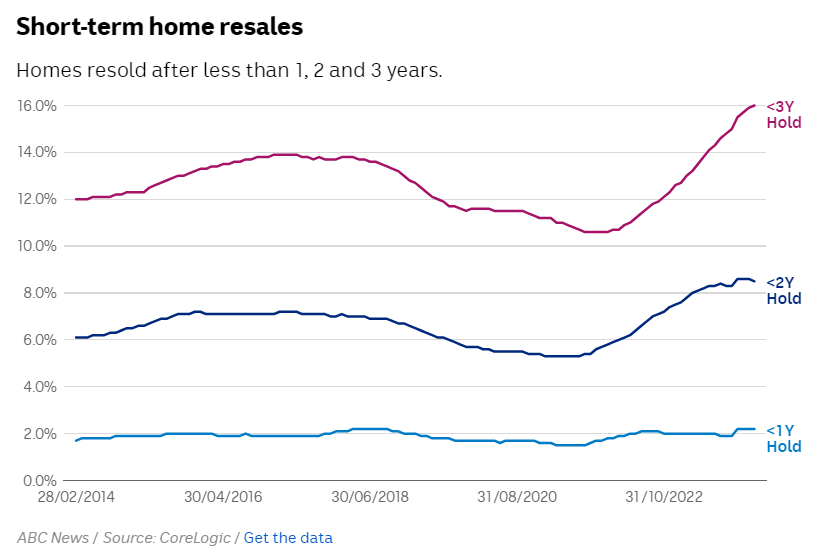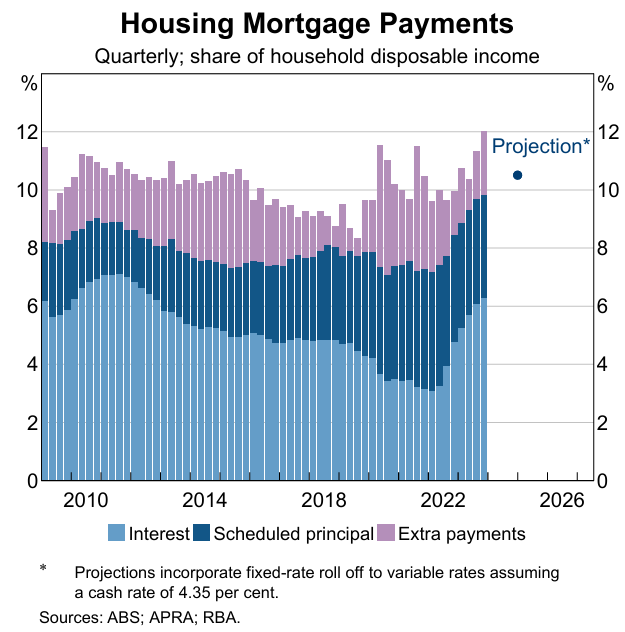The ABC’s business editor, Michael Janda, has published the following chart showing the sharp increase in short-term home re-sales, which he says is evidence of struggling borrowers bailing out and selling.

“While it’s impossible to find an exact number, there is strong evidence that a significant cohort of struggling borrowers have bailed out and sold”, Janda wrote.
“Quick resales (those within a few years of purchase) were at record highs earlier this year”…
“The timeframe of the surge corresponds neatly with the fixed mortgage cliff, which has seen more than a million mortgages roll off ultra-cheap deals onto rates that are in many cases more than three times higher”.
Variable principal and interest mortgage repayments have risen by around 50% since the start of the Reserve Bank of Australia’s (RBA) monetary tightening cycle, which has lifted the scheduled mortgage payments to their highest share of income on record.

This increase in mortgage payments has pushed around 800,000 additional Australians into mortgage stress, according to Roy Morgan Research.
Janda quoted commentary from S&P Global’s Erin Kitson, who noted that “what has helped mortgage arrears has been the property price appreciation”.
“Obviously, rising property prices mean that for those more financially stretched borrowers, they can voluntarily sell a property without realising a loss, and that keeps mortgage arrears low because it means they’re not advancing to those more severe stages”, she said.
“The other way that our property price appreciation helps our mortgage arrears is by helping a borrower’s refinancing prospects”.
“So refinancing is a really common way for a borrower to self-manage their way out of financial pressure and move on to a lower mortgage rate, and lenders look more favourably at borrowers with more modest loan-to-value ratios”, Kitson said.
The flipside is that should Australia’s unemployment rate rise alongside a correction in home prices, then the number of forced sales will likely jump.
How bad it gets would depend on the speed at which the RBA responds with rate cuts.

